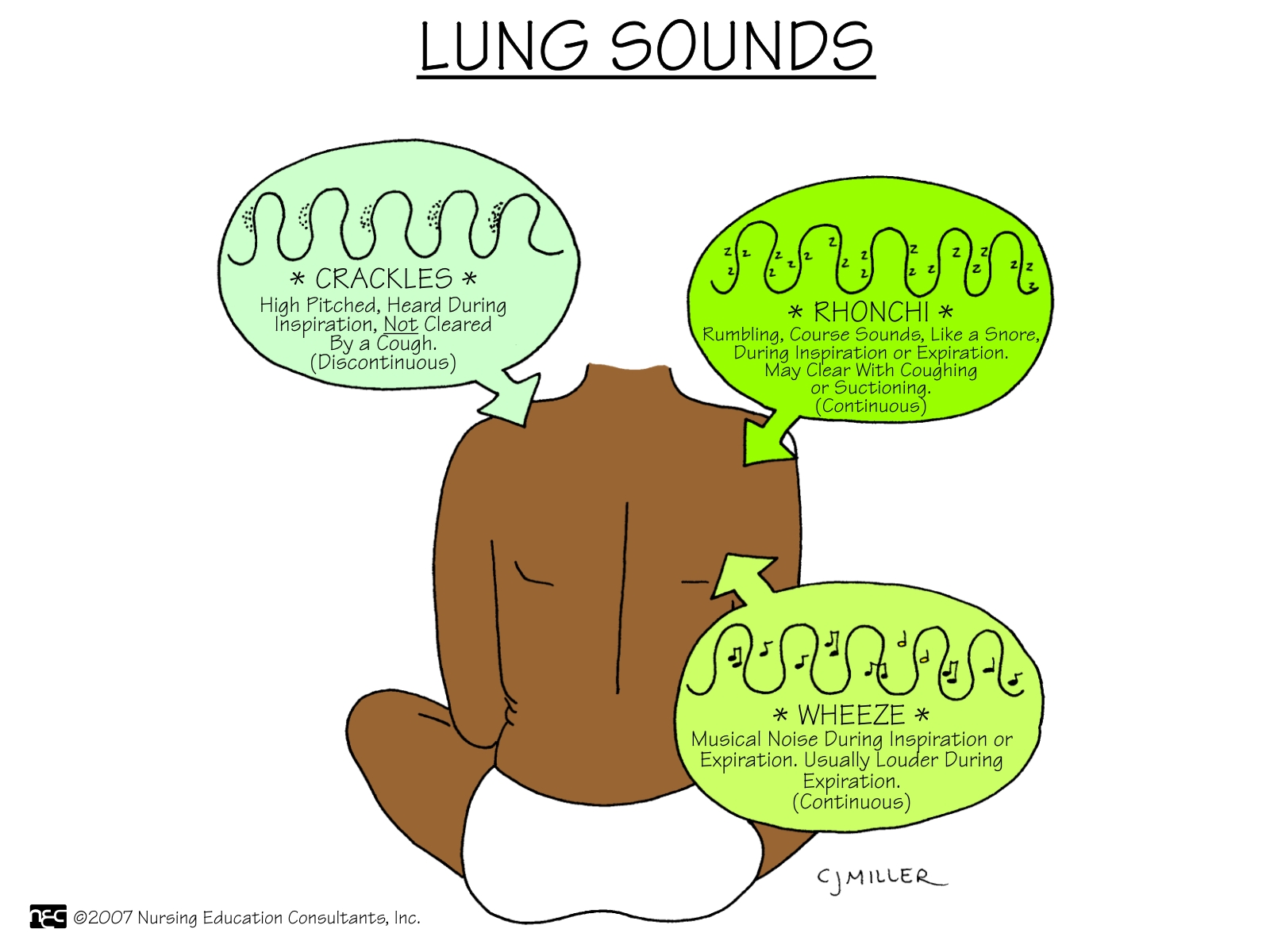

Automatic adventitious respiratory sound analysis: A systematic review. The New England Journal of Medicine, 370(8), 744–751 Bohadana, A., Izbicki, G., & Kraman, S.You can learn more about how we ensure our content is accurate and current by reading our editorial policy. We link primary sources - including studies, scientific references, and statistics - within each article and also list them in the resources section at the bottom of our articles. Medical News Today has strict sourcing guidelines and draws only from peer-reviewed studies, academic research institutions, and medical journals and associations. Prompt diagnosis and treatment of the underlying cause will give them the best chance of avoiding further health complications. People should speak to a doctor as soon as they notice abnormal breath sounds. stridor, which means that the person has an upper airway blockage and may be choking or having an acute allergic reaction.

Rales lung sounds cause skin#
the skin turning blue, especially in the lips or face. bending forward and using the abdominal muscles or neck muscles to assist or force breathing. In the emergency room, doctors will look for other signs of emergency conditions, such as: It is essential to take anyone who is having problems breathing or who has stopped breathing to the emergency room. People should seek immediate medical attention for abnormal breath sounds or breathing difficulties that are sudden or severe. In some cases, abnormal breath sounds can be a medical emergency. However, they may also be a sign of a more severe underlying condition. Share on Pinterest Seek emergency treatment for sudden or severe breathing difficulties.Īnyone experiencing continuous abnormal breathing sounds should see a doctor for a proper diagnosis.Ībnormal breathing sounds often indicate common and treatable disorders. The test will measure how much air the person inhales and exhales and will show whether or not their breathing function is normal. For this test, a person must cough up some sputum, which a doctor will then send to a laboratory to check for infectious germs.Ī pulmonary function test may help doctors determine if the airways are blocked or damaged. If an infection is present, sputum testing may be necessary to diagnose the cause of abnormal breath sounds. They may also order blood tests to check for signs of underlying conditions. It is likely that a doctor will order other tests, including imaging tests such as a plain film X-ray or CT scan to look at the chest structures. They may also ask when the symptoms began and if anything relieves or provokes them. They may ask about any medication the person is taking or has taken recently. Some doctors also use other listening tools, such as computerized lung sound analysis. This will help to identify the type of abnormal breath sound and narrow down the potential causes. Share on Pinterest An X-ray may help to diagnose the cause of abnormal breathing.Ī doctor will use a stethoscope to listen to the individual’s lungs and air passages as they breathe. Stridor can also be a symptom of inflammatory conditions, such as tonsillitis, epiglottitis, or croup (laryngotracheitis). A traumatic neck or chest injury involving the upper airway could result in a blockage too. A blockage may occur if a person breathes in a foreign object, chemical, or other harmful substance. Stridor: Stridor occurs in people with an upper airway blockage. Conditions such as acute bronchitis and COPD may cause rhonchi. There may also be inflammation and fluid in these airways. 
Rhonchi: Rhonchi occur due to conditions that block airflow through the large airways, including the bronchi.Wheezing: Wheezing is a common symptom of conditions that narrow the small airways in the lungs, such as asthma and COPD.Conditions such as pneumonia or left-sided heart failure may cause this buildup. Crackles: Crackles commonly happen as a result of fluid accumulation in the lungs.pulmonary edema, which may relate to congestive heart failure or end-stage renal diseaseĮach type of breath sound has specific causes:.an object stuck in the lungs or other airways.chronic obstructive pulmonary disease (COPD), including emphysema and chronic bronchitis.bronchiectasis, an abnormal widening of the airways in the lungs.The type of breath sound may be different depending on the underlying condition.Ĭommon causes of abnormal breath sounds include: Problems in the lungs or other airways are generally the cause of abnormal breath sounds.







 0 kommentar(er)
0 kommentar(er)
